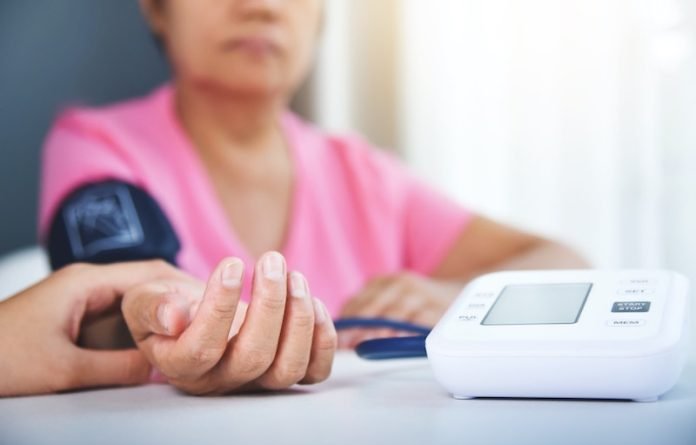
A recent study by researchers from the University of Colorado, the University of Arizona, and Alma College found that resistance-breathing training can lower blood pressure as effectively as certain medications or exercises.
The study was published in the Journal of Applied Physiology.
Resistance-Breathing Training for Hypertension
Hypertension, or chronic high blood pressure, is a serious health concern, which can result in a wide range of complications, including vision loss, strokes, and heart attacks.
Typically, patients are advised to modify their diet and increase physical activity. If these measures fail, medications are usually prescribed.
The researchers, in this new effort, explored a different therapy to lower blood pressure levels—resistance-breathing training.
Resistance-breathing training involves inhaling and exhaling through a compact device known as a POWERbreathe for several minutes each day.
The device compels the user to use their breathing muscles to push and pull air through it, strengthening these muscles.
The researchers discovered that this process also lowers blood pressure. The device has been used previously to help athletes, singers, and people with weak lung muscles.
Study Findings and Implications
Healthy volunteers were asked to use the device for a few minutes every day for six weeks, with each session consisting of 30 inhales and exhales. Blood pressure was measured before and after the training period.
The results revealed an average sustained drop of 9 mmHg in systolic blood pressure (the upper number in blood pressure readings), where normal pressure is typically defined as 120/80.
This reduction was considered significant, similar to the effects seen with some medications, or in many patients who start an aerobic exercise regimen like walking, cycling, or running.
The researchers suggested that resistance-breathing training could be a potential therapeutic option for patients of all ages, especially those who cannot partake in exercise, to manage and reduce their blood pressure levels.
If you care about high blood pressure, please read studies that drinking tea could help lower blood pressure, and herbal supplements could help reduce high blood pressure
For more information about blood pressure, please see recent studies about added sugar in your diet linked to higher blood pressure, and results showing vitamin D could improve blood pressure in people with diabetes.
The study was published in the Journal of Applied Physiology.
Copyright © 2023 Knowridge Science Report. All rights reserved.




